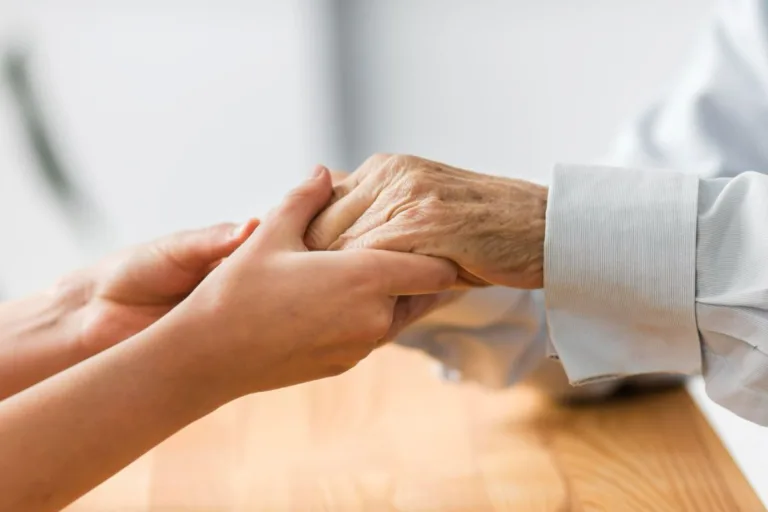Por vladimir Aras
There’s no denying that corruption and the organised crime are intertwined. On one hand, corruption can be identified as one of the underlying factors that affect the rule of law and the fight against organised crime, undermining effective enforcement strategies. On the other hand, criminal organisations profit from crime: corrupted politicians and public officials take bribes to carry out unlawful tasks, which results in criminal organisations making even more money. On the long run, as organised crime becomes stronger and stronger, the rule of law is endangered, while more people are victimised by it.
Needless to say, such a threat is larger than any country’s jurisdiction could handle by itself, which means that, in practical terms, the organised crime must be fought on the international, co-operative level. Notably, the global legal framework is very complex and involves many important conventions, such as the following, to name but a few:
a) United Nations Convention on Transnational Organised Crime (UNTOC);
b) Protocol to Prevent, Suppress and Punish Trafficking in Persons, Especially Women and Children (supplementing UNTOC);
c) Protocol against the Illicit Manufacturing of and Trafficking in Firearms, Their parts and Components and Ammunition (supplementing UNTOC);
d) Protocol against the Smuggling of Migrants by Land, Sea and Air (supplementing UNTOC);
e) International Labour Organisation’s Forced Labour Convention;
f) Council of Europe’s Convention against Trafficking in Human Organs;
g) Inter-American Convention against the Illicit Manufacturing of and Trafficking in Firearms, Ammunition, Explosives, and Other Related Materials (CIFTA);
h) United Nations Convention against Illicit Traffic in Narcotic Drugs and Psychotropic Substances (also known as the Vienna Convention);
i) The Budapest Convention on Cybercrime (COE, CETS 185);
j) United Nations Convention against Corruption (UNCAC);
k) United Nations Convention on the Law of the Sea (UNCLOS);
l) United Nations legal instruments to counter terrorism[3];
m) United Nations Convention on the Means of Prohibiting and Preventing the Illicit Import, Export and Transfer of Ownership of Cultural Property, et al (UNESCO conventions etc).
The aforementioned treaties are of the utmost importance so as to ensure the effectiveness of intricate prosecution cases, especially when it comes to investigating the connections between corruption, human trafficking, money laundering and other forms of organised crime. Prosecutors and judges everywhere can rely on those treaties and on internal regulations in order to prosecute criminals and protect victims.
As we all live in a global economy, it’s become increasingly easier to travel abroad, to buy goods virtually anywhere, to wire money to other countries instantly, amongst other commodities of contemporaneity. It stems from this that criminality has made use of such resources and technologies, having thus gone global. As a result, criminality must be fought off globally, as long as the rule of law is abided by. This is exactly why the aforementioned treaties have become so important.
In order to efficiently fight off international crime, the following five pillars, which criminal law policies must rely on, have been designed:
a) criminal law in every nation must become as globally standardised as possible;
b) special investigation techniques must be stipulated by national laws;
c) judges, prosecutors and law-enforcement agents must undergo special training programmes;
d) international co-operation in criminal matters must become more widely and more often used [4];
e) criminal proceedings must follow minimum international standards to protect the rights of victims and defendants.
So that these pillars can be effective, judges and prosecutors must also adhere to a few simple good practices, as follows:
a) they must undergo capacity-building and training programmes;
b) they must co-ordinate with the private sector so as to ensure that corporate social responsibility (CSR) duly takes place;
c) they must stop at nothing in their efforts to improve the access to justice;
d) they must make their part so that legal institutions (and other agents involved in co-operation as well) become stronger and more accountable;
e) they must abide by human rights; and
f) they must play their role in strengthening the mutual recognition of judicial measures.
The fight ahead is long and hard but it must be faced very diligently and with our heads held high. Being discouraged by corruption is easy, as it is a means that facilitates the trafficking of human beings. Combating bribery may be quite daunting, as it enables criminals to buy passports and visas quite easily, therefore crossing borders and fleeing from justice. It may seem like a thankless job at times.
This makes me think of the anti-trafficking paradigm, which includes three main tasks for law-enforcement agents, prosecutors and judges: i) preventing crime; ii) protecting victims; iii) prosecuting, trying and convicting perpetrators. In order to achieve this, building alliances is of paramount importance: we must build and constantly renew the bridges with foreign law-enforcement agencies, foreign prosecutors, and the private sector (the latter, whenever appropriate). The keyword here is encouraging, establishing and nurturing partnerships. The instrument to be used is the international legal co-operation in criminal matters.
So as to illustrate such co-operation, I shall mention two human trafficking cases that I have come across during my career: the first one is called “princesses of the Brazilian hinterland” (operação Princesas do Sertão). This was the case of 32 poor and humble women who were lured into accepting plane tickets to migrate to Italy and Spain under the promise of a better life. What happened instead was that these women were held hostages of a criminal organisation and forced into prostitution after the trip. As the police in Brazil looked into the disappearance of a teenager, a criminal ring was unveiled and the operation of three groups which exploited these women was found. Among other crimes, these groups committed fraud against credit card holders in order to pay for the women’s plane tickets. Fortunately, the women were found and rescued, while the criminals were prosecuted, convicted and their assets were confiscated. Such a happy ending was only possible due to the use of mutual legal co-operation requests among Brazil, Spain and Italy.
The second case has a very appropriate though gruesome name (Operation Scalpel or “Bisturi”), and regards the exploitation of 47 underprivileged Brazilian victims, who were flown to South Africa in order to have one of their kidneys surgically removed. The exploitation of their misery is clear when one verifies that a human kidney is priced at USD 150,000 in the international market, while these victims were paid from USD 1,500 to as much as USD 7,000 for their organs. These Brazilians had their kidneys transplanted into the bodies of sickly Israeli patients, who found the scheme a good bargain in order to solve their health condition. After all, the scheme had previously existed in Israel, but an Israeli kidney was far more expensive than those of Brazilians or Romanians, which is why these nationals were chosen to be exploited instead. The fraud involved was so utterly appalling that documents related to surgeries were forged to make it appear that the organ recipient and the donor were family members, which is a legal requirement in South Africa. Luckily, 32 persons were convicted of these crimes in three different countries (Brazil, Israel and South Africa), while one of the criminals was extradited from Italy in order to serve jail time. As one can clearly see, such difficult cases can only come to a happy ending (or, at least, to justice being served) if mutual legal co-operation takes place.
Both cases were carried out by prosecutors from the Federal Prosecution Service (Ministério Público Federal) and successfuly tried before federal courts in Brazil.
As a matter of fact, Brazil has been doing its homework in order to prepare to fight this war. The Brazilian government, independent agencies, prosecution services and courts have gathered yearly in order to establish goals to be achieved by each institution. ENCCLA [5] actions include bills for enacting new legislation, capacity-building, and co-ordination of law-enforcement agencies. In addition to that, AIAMP[6] has started the campaign “Corruption No[7]” to promote the rule of law in the jurisdictions of its 21 member-countries.
Furthermore, on this matter, Brazil is also committed to complying with the 17 United Nations Sustainable Development Goals (SDGs), especially 8.7 (relater to Decent Work and Economic Growth), which pledges for countries to “take immediate and effective measures to eradicate forced labour, end modern slavery and human trafficking and secure the prohibition and elimination of the worst forms of child labour, including recruitment and use of child soldiers, and by 2025 end child labour in all its forms”.
Other goals that are worth mentioning are linked to the idea of promoting peace and justice and strong institutions (SDG 16):
16.2. “End abuse, exploitation, trafficking and all forms of violence against and torture of children”.
16.3. “Promote the rule of law at the national and international levels, and ensure equal access to justice for all”.
16.4 “By 2030 significantly reduce illicit financial and arms flows, strengthen recovery and return of stolen assets, and combat all forms of organised crime”.
16.5 “Substantially reduce corruption and bribery in all their forms”.
16.11 “Strengthen relevant national institutions, including through international co-operation, for building capacity at all levels, in particular in developing countries, to prevent violence and combat terrorism and crime”.
Therefore, time is ticking out for this Agenda 2030. As stated before, fighting corruption is instrumental in order to tackle the organised crime efficiently. As one looks back upon the history of Brazil, one can’t overlook the fact that millions of Africans were displaced, enslaved and forcibly shipped to Brazil and other South-American nations. In that diaspora, millions of lives were lost or changed irremediably.
The past cannot be altered. What one must attempt to do is try and change the present. In this sense, judges, prosecutors and law-enforcement agents must renew their vows to continue their struggle to protect the future of many generations to come. Even if such a future seems bleak, one may not lose hope, as too many depend on this work and it must not and cannot be stopped. Here’s to hoping that the wheels shall keep on turning. I rest my case, but prosecutors, judges and the civil society may not rest.
Footnotes:
[1] Special thanks to Mr. Nerrian Possamai, for helping me to improve the English translation of this paper, which was presented at the Judge’s Summit against Human Trafficking and Organized Crime, held on 3-4 June 2016 at the Pontifical Academy of Social Sciences (PASS), in the Vatican City.
[2] Vladimir Aras is a Federal Appellate Prosecutor in Brasília, Brazil. He is the Head of the International Cooperation Secretariat within the Office of the Attorney General (SCI/PGR). He is also a Professor of Criminal Law at the Federal University of Bahia (UFBA), in Salvador, and has a Master Degree in Public Law at the Federal University of Pernambuco (UFPE).
[3] Such as the 1970 Convention for Suppression of Unlawful Seizure of Aircraft; the 2010 Convention on the Suppression of Unlawful Acts Relating to International Civil Aviation; the 1973 Convention on the Prevention and Punishment of Crimes Against Internationally Protected Persons; the 1979 International Convention against the Taking of Hostages; the 1980 Convention on the Physical Protection of Nuclear Material; the 1988 Convention for the Suppression of Unlawful Acts against the Safety of Maritime Navigation; the 1991 Convention on the Marking of Plastic Explosives for the Purpose of Detection; the 1997 International Convention for the Suppression of Terrorist Bombings; the 1999 International Convention for the Suppression of the Financing of Terrorism; and the 2005 International Convention for the Suppression of Acts of Nuclear Terrorism, et al.
[4] Some objects that may be requested in international co-operation proceedings are: a) obtaining evidence overseas; b) freezing and recovering assets; c) extraditing criminals; d) protecting victims, et al.
[5] ENCCLA: National Strategy on the Fight against Corruption and Money Laundering.
[6] AIAMP: Inter-American Association of Public Prosecution Services.
[7] Website in Spanish: http://corrupcaonao.mpf.mp.br/es; and in Brazilian Portuguese: http://corrupcaonao.mpf.mp.br/.










